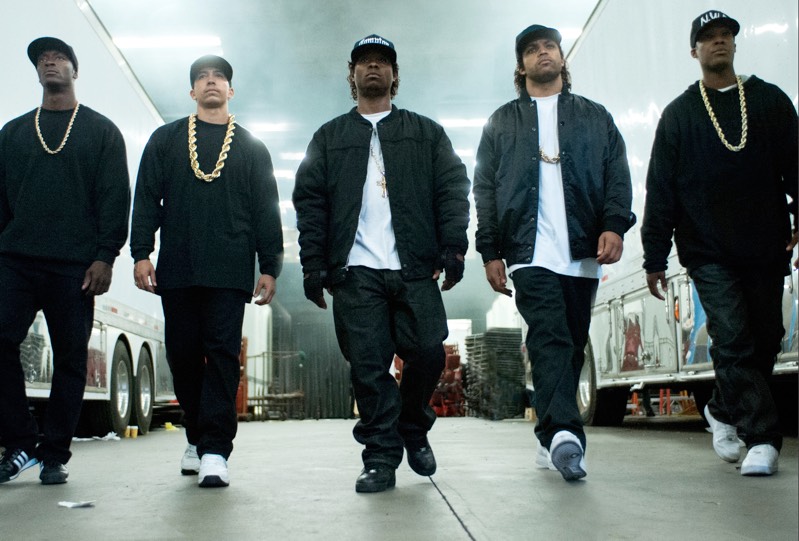 NEWS
NEWS
 NEWS
NEWS
 NEWS
NEWS
Facebook Inc.’s ability to deliver advertising based on the presumed race of the viewer has been thrown into the spotlight after it was disclosed by Universal Pictures that they delivered different trailers for the movie Straight Outta Compton based on race.
In a panel at South by Southwest, Universal’s Executive Vice President of Digital Marketing, Doug Neil, described how they served up different trailers based on a presumption that white people were unlikely to know who NWA, the band the biopic was based on, were, but were likely to know of two of its members, Dr. Dre and Ice Cube, for their more recent work as the founder of the now Apple, Inc. owned Beats Audio, and as an actor respectively.
Conversely, the trailer delivered to those presumed by Facebook to be African American focused on the band itself, as it was presumed that African American’s would know who they were.
According to Business Insider:
Neil credited part of [the film’s success] to a specialized Facebook marketing effort led by Universal’s “multicultural team” in conjunction with its Facebook team. They created tailored trailers for different segments of the population….The “general population” (non-African American, non-Hispanic) wasn’t familiar with N.W.A., or with the musical catalog of Ice Cube and Dr. Dre, according to Neil. They connected to Ice Cube as an actor and Dr. Dre as the face of Beats, he said. The trailer marketed to them on Facebook had no mention of N.W.A. but sold the movie as a story of the rise of Ice Cube and Dr. Dre.
The trailer marketed to African Americans was completely different. Universal assumed this segment of the population had a baseline familiarity with N.W.A. “They put Compton on the map,” Neil said. This trailer opens with the word N.W.A. and continues to lean on it heavily throughout.
The revelation has been described as “whitewashing” by African American websites, a process described by Wikipedia as “the casting practice in the film industry in the United States in which white actors are cast in historically nonwhite character roles,” but seemingly here, given the cast of the film is black, more the removal of the mention of NWA in the trailer tailored to white Americans.
Whitewashing as a concept has become the focus of politically correct social justice warrior groups since the Oscars earlier this year didn’t feature any nominees that were African American, a move described as being racist in its intent.
There may be a reasonable argument that having different trailers tailored for the race of the viewer may be racist in itself, but likewise, the logic used by Universal was simple marketing 101: create advertising that connects with a viewer, even if it is based on presumptions around race.
Facebook itself doesn’t ask for the race of its users and instead makes the race presumption based on things such as content a user likes on the social networking service; how accurate those presumptions are is unknown for sure, but at least in the case of Straight Outta Compton seem to be fairly accurate.
The information provided for the targeting service doesn’t refer even once to targeting based on race, but instead refers to it as “ethnic affinity” targeting:
The diversity of the US is more than an ethnic biodiversity. These groups of people have a rich diversity of culture, which can include many things, such as beliefs, traditions, music, aesthetics, or language. The people in the US who have demonstrated affinity for the cultures of these groups make up the US Multicultural Affinity audiences.
The word “affinity” can generally be defined as a relationship like a marriage, as a natural liking, and as a similarity of characteristics. We are using the term “Multicultural Affinity” to describe the quality of people who are interested in and likely to respond well to multicultural content. What we are referring to in these affinity groups is not their genetic makeup, but their affinity to the cultures they are interested in.
The Facebook multicultural targeting solution is based on affinity, not ethnicity. This provides advertisers with an opportunity to serve highly relevant ad content to affinity-based audiences.
Facebook argues that ethnicity is about “affinities… a similarity of characteristics” and not “genetic,” presumably meaning that if you were white and pretending to be black, such as with the case of Rachel Dolezal in 2015, you would be shown the ad targeting African Americans.
As Ars Technica points out for Facebook ethnicity is treated as another “demographic,” along with income level, and age.
“Several news outlets have stated that Facebook allows advertisers to target ads based on race. That is not accurate,” Facebook said in a statement. “Facebook does not have a capability for people to self-identify by race or ethnicity on the platform. As part of its advertising offering, brands can target ads on Facebook to people based on how they might respond to content. The affinity segments are created, in a privacy-safe way, using signals such as different languages, likes, and group membership on the platform.”
Support our mission to keep content open and free by engaging with theCUBE community. Join theCUBE’s Alumni Trust Network, where technology leaders connect, share intelligence and create opportunities.
Founded by tech visionaries John Furrier and Dave Vellante, SiliconANGLE Media has built a dynamic ecosystem of industry-leading digital media brands that reach 15+ million elite tech professionals. Our new proprietary theCUBE AI Video Cloud is breaking ground in audience interaction, leveraging theCUBEai.com neural network to help technology companies make data-driven decisions and stay at the forefront of industry conversations.